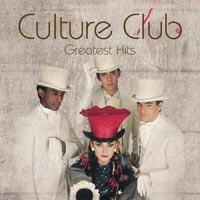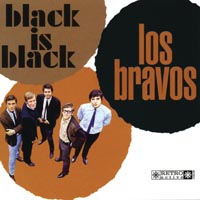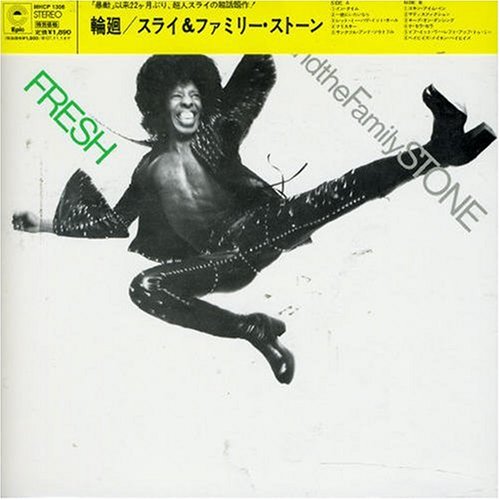2022-01-01
A Look Back at the Rise and Fall of Culture Club
Culture Club is an iconic 80s band known for their unique dance-pop sound, electrifying visuals, and way of uniting people through music. Although the group experienced mainstream success in their heyday with massive hits like “Karma Chameleon” and “Do You Really Want To Hurt Me?” they have faced critiques since then. In this blog post we will be looking at both the good and bad aspects of Culture Club's music career so far. We'll explore all that made them great back in the day as well as where they stumbled a bit over time to give listeners a balanced view on what has been working – and not working – for one of the most loved bands from the 80s. So if you're ready to get your groove on while taking a critical look back at Culture Club's past, let's dive into our exploration!
If you're a music lover from the 80s, you must have heard of Culture Club. This iconic band, led by the charismatic Boy George, swept the world off its feet with their unique sound and electrifying music videos. They were one of the first bands that spoke openly about their sexuality and were beloved for their unifying message. But as the years passed, the band fell from grace, and their music became less popular, leading to heated debates among their fans about where it all went wrong. In this blog post, we'll take a look back at Culture Club's rise to fame, their enduring impact on music, as well as where they went astray.
Culture Club's rise to fame is a story of immense talent, distinct sound, and an eye for the dramatic. Their first hit, Do You Really Want To Hurt Me? topped the charts in the UK, opening doors for them worldwide. Boy George's cross-dressing style and flawless vocals made him an unforgettable frontman. The band's sound was unique because it flawlessly fused dance-pop with reggae, soul, and funk. They were ahead of their time in their message of inclusion and acceptance, and their music videos were as visually stunning as the music itself. They were, without a doubt, one of the most influential pop bands of the 80s.
But with success comes scrutiny, and as Culture Club's fame grew, so did their critics. Many accused them of creating shallow, commercial music that lacked substance. The critics also pointed out that the band's sudden fame caused friction among its members, with Boy George's personality issues being the most significant problem. Boy George's relationship with drummer, Jon Moss, was well documented, and many felt that it was a significant distraction from the band's music. Also, the band's music gradually lost its edge, relying more on catchy hooks and less on social commentary.
Despite the criticism, Culture Club's music still had moments of brilliance. For instance, songs such as Time and Church of the Poison Mind showed the band's ability to tackle complex themes, and Karma Chameleon was a testament to their ability to create catchy and memorable songs. However, as the years passed, the band struggled to maintain their success. Internal conflicts, drug addiction, and being out of step with the changing tastes of the music industry engulfed the band, leading to their eventual breakup.
Culture Club's rise and fall is a cautionary tale about the pitfalls of fame. They started with a bang, creating unforgettable music that spoke to a generation. But as success grew, they became more commercial, and their music lost its touch. The band's internal conflicts also didn't help, leading to their eventual downfall. Despite that, their music remains a testimony to their talent and influence in the pop music sphere. Culture Club's music is a legacy that still inspires musicians and fans today. And while their journey may have ended less than perfectly, their music will continue to live on. So if you want to experience Culture Club's iconic sound first hand, go ahead and stream their music. You won't be disappointed.
If you're a music lover from the 80s, you must have heard of Culture Club. This iconic band, led by the charismatic Boy George, swept the world off its feet with their unique sound and electrifying music videos. They were one of the first bands that spoke openly about their sexuality and were beloved for their unifying message. But as the years passed, the band fell from grace, and their music became less popular, leading to heated debates among their fans about where it all went wrong. In this blog post, we'll take a look back at Culture Club's rise to fame, their enduring impact on music, as well as where they went astray.
Culture Club's rise to fame is a story of immense talent, distinct sound, and an eye for the dramatic. Their first hit, Do You Really Want To Hurt Me? topped the charts in the UK, opening doors for them worldwide. Boy George's cross-dressing style and flawless vocals made him an unforgettable frontman. The band's sound was unique because it flawlessly fused dance-pop with reggae, soul, and funk. They were ahead of their time in their message of inclusion and acceptance, and their music videos were as visually stunning as the music itself. They were, without a doubt, one of the most influential pop bands of the 80s.
But with success comes scrutiny, and as Culture Club's fame grew, so did their critics. Many accused them of creating shallow, commercial music that lacked substance. The critics also pointed out that the band's sudden fame caused friction among its members, with Boy George's personality issues being the most significant problem. Boy George's relationship with drummer, Jon Moss, was well documented, and many felt that it was a significant distraction from the band's music. Also, the band's music gradually lost its edge, relying more on catchy hooks and less on social commentary.
Despite the criticism, Culture Club's music still had moments of brilliance. For instance, songs such as Time and Church of the Poison Mind showed the band's ability to tackle complex themes, and Karma Chameleon was a testament to their ability to create catchy and memorable songs. However, as the years passed, the band struggled to maintain their success. Internal conflicts, drug addiction, and being out of step with the changing tastes of the music industry engulfed the band, leading to their eventual breakup.
Culture Club's rise and fall is a cautionary tale about the pitfalls of fame. They started with a bang, creating unforgettable music that spoke to a generation. But as success grew, they became more commercial, and their music lost its touch. The band's internal conflicts also didn't help, leading to their eventual downfall. Despite that, their music remains a testimony to their talent and influence in the pop music sphere. Culture Club's music is a legacy that still inspires musicians and fans today. And while their journey may have ended less than perfectly, their music will continue to live on. So if you want to experience Culture Club's iconic sound first hand, go ahead and stream their music. You won't be disappointed.
Tag: Culture Club, music artist, best songs, artist career
2023-03-15
The Greatest Basketball Songs of All Time (when the pop music meets sport events)
Music is a very powerful tool. Not only can it affect your mood, help you concentrate, help you express your feelings, and keep you entertained, but music is a very good tool for evoking memories...read more
2022-01-01
NoFX - Punk Rock Pioneers or Sloppy Musicians?
For many rock fans, NoFX is considered one of the most influential punk bands of all time. Since forming in Los Angeles during 1983, Nofx has released an impressive twelve studio albums and have become notorious for their rebellious attitude and relentless energy that they bring to every performance...read more
2022-11-01
The Musical Biography of Los Bravos: From Beginnings to Fame
Music has the power to transport us to different places and times. And Los Bravos was one of those bands that introduced a new sound that marked the 60s and early 70s...read more
2022-01-01
A Look at Sly & The Family Stone’s Impact on Popular Culture
Sly & The Family Stone have a unique sound that touches listeners’ hearts. Whether you love or hate their quirky beats and soulful vocals, there’s no denying the impact they had on music in the late 60s and 70s—not to mention their lasting legacy today...read more
2022-11-01
The Musical Journey of Rudimental: From Beginnings to Fame
If you’re into electronic music, chances are you’ve heard of the British band Rudimental. With their massive hits and energetic live performances, Rudimental has become synonymous with dance music...read more
SUGGESTED PLAYLISTS








